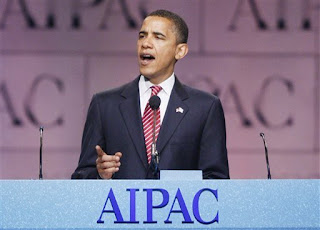
When I learned that Qunfuz (Robin Yassin-Kassab) had published his first novel, I just had to read it. A few clicks on my keyboard and it was making its way from Amazon.UK. The book arrived at my doorstep from across the Atlantic in four days!
Anyone who reads Robin's blog knows what a talented writer he is. I still remember the first post of his that I read. What impressed me most was not so much his writing style but the anecdote and the insights it gave me about the writer. The post was about the time he spent at a meditation retreat somewhere -I believe- outside London. Here was a man, I thought, with a wide intellectual horizon; someone, with a clear orientation on the larger issues of life but yet not someone stuck on a rigid ideological track. I have read most of his posts since. They have served to confirm my initial impression but also provided me with further insights into his thinking on a range of issues including politics, religion and identity. I have not necessarily always agreed with his ideas but his thoughts were never presented in a strident and dogmatic manner; there was always room for an alternate view and for all the shades of grey in between. It also became clear, on reading his posts, that he was an exceptional writer.
The Road From Damascus deals with issues of faith, secularism, identity and politics among Arab immigrants in that overheated melting pot that is modern-day London. Those are all issues that have preoccupied all Arabs individually and collectively for much of the second part of the 20th century and into the present. It is, however, among Arab immigrants living in the West, straddling the fault line of the East-West divide, where these issues are most intensely felt and where there is a sense of urgency in defining an identity lest others define it for them. These feelings were particularly acute during the decade of the 90s leading to 9/11, the time frame covered by this novel.
The novel explodes dense with ideas and thoughts, a reflection, I suspect, of Robin's hyperactive mental ferment. Perhaps there was enough material for more than one novel compressed into this single book. Stylistically, the writing evolves with the story. It starts at a frenetic pace, with short, brusque -often one word- sentences packed with abstract imagery, symbolism and allusions. It takes getting used and it left me, at times, mentally exhausted. Perhaps it is because this book reached deep inside my psyche and pulled me in. I am a generation older than the protagonists yet I, like them, continue to struggle with issues of identity and faith. I am resigned to the fact that this may be a never ending quest, struggle, jihad for the truth -as it probably should be. In the last third of the novel the writing is noticeably more relaxed and the sentences longer despite the fact that the world around the protagonists was getting crazier. This change, purposeful or not, appeared to mirror Sami's mental transformation as he sheds his father's rigid, uncompromising secularism and reconciles with his wife and the reality of the world around him.
Novels, especially ones dealing with intimate subjects like faith and identity tend to be, to a degree, autobiographical. Reading Robin's blog, it is clear that many of the ideas that preoccupy him reappear as preoccupations of the some of the novel's protagonists. In fact as I read the detailed description of Sami's facial features early on in the novel, I flipped to the back of the book searching the jacket flap for a picture of the author; the physical similarities were striking. Moreover, at the risk of being wrong, I suspect that there might be some of Robin in Muntaha's Sufi-infused Islam.
It goes without saying that I highly recommend this book for anyone interested in an in depth and uncompromisingly clear-eyed handling of many of the controversies that roil the Arab and Muslim world. But, just as importantly, it is a story well told and beautifully written. Robin alternates between original, symbolic, fantastical turns of phrases to graphic realism that overloads your sensorium. He brings to life places and persons with an uncanny eye for detail. He knows his Arabs and he knows his Brits of all colors a persuasions and he knows them intimately. The book starts with a dark and pessimistic outlook of the world and ends on a much more hopeful note as the main protagonist finds inner balance in his life despite a world that is anything but in balance around him.












